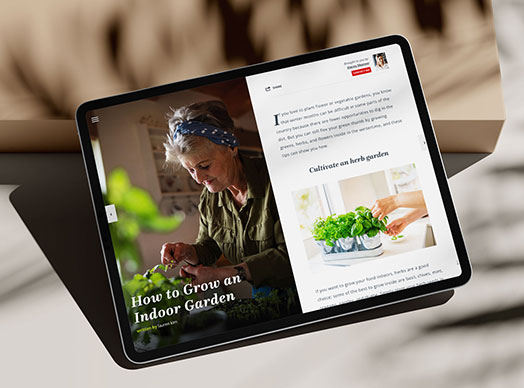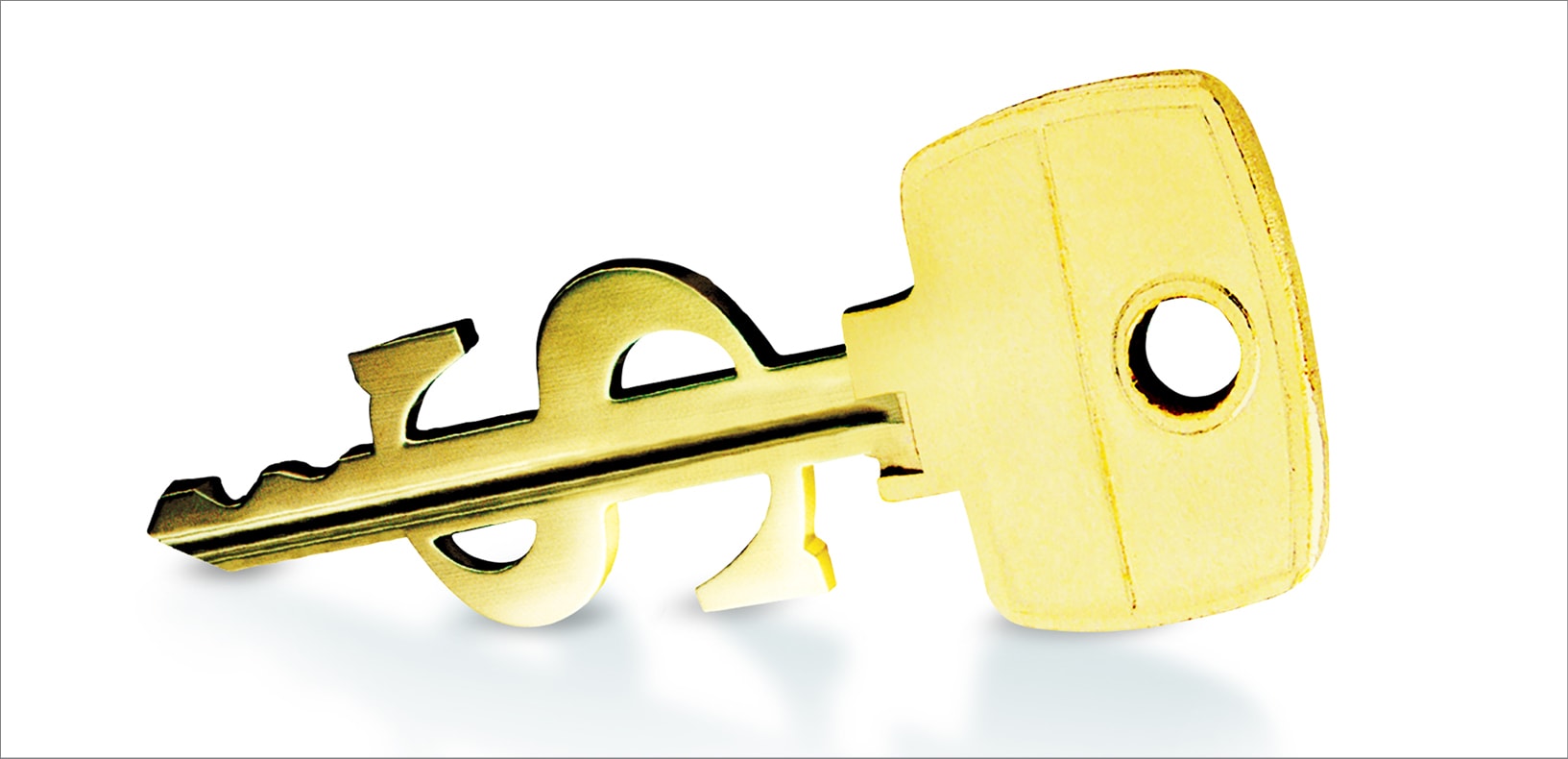Aside from ensuring that your clients’ money is responsibly invested, one of the most important aspects of your job as a financial advisor is to make your clients feel secure and never regret the trust they’ve put in you. This isn’t simply for their benefit—happy and secure clients are going to remain loyal to you, put more of their assets under your care, and refer friends and family.
To develop this degree of trust, you must build and nurture the relationships you have with your clients. To help, I’ve put together 3 strategies that rely on the principles of relationship marketing. Implement these strategies into your office culture and commit to them yourself, and you’ll be rewarded with clients for life.
1. Make it your mission to learn about your clients’ lives outside of business
Here’s the thing about “client” relationships—you can build client relationships and rapport with customers better if you stop treating your clients like pleasant acquaintances and start treating them more like friends.

Client relationships will become more intimate when you start to think about and treat them like friends.
Right away, I bet some of you had a flashing image of your worst client come to mind and you thought, “Oh, hell no!”
Okay, fine. You can’t be friends with everyone.
But if the majority of people you work with are people you like, then building and maintaining client relationships should be no more difficult than building and maintaining relationships with your friends. And the best way to start is to take more interest in them and learn more about them than what is revealed by their portfolios.
Share a meal
One of the first things you can do to learn more about your clients outside of business is to get out of the office. You’re likely meeting with your clients anyway, so why not have your meeting over lunch or dinner?
There is an abundance of evidence—both anecdotal and scientific—to suggest the many benefits of sharing a meal with someone:
- When we share a meal, we have the opportunity to connect with others, talk about our days, practice listening, feel heard, and engage in storytelling. It also permits a natural break in our days and a chance to slow down and relax. Source
- Eating together can radically shift our perspectives, reducing our perceptions of inequality so that we view those of different races, genders, and socioeconomic backgrounds as more equal than we would in other social situations. Source
- Teams that require strong collaboration and have a tradition of sharing mealtimes, such as army platoons and firefighters, tend to demonstrate higher levels of teamwork and collaboration. Source
And if you want to maximize the bonding effect of dining together, then order the same meal. At least one study found that when people not only ate together but also ate the same food, their trust in one another was built more quickly!

Sharing a meal is a long-standing social activity that naturally promotes the formation of stronger bonds.
A fantastic way to achieve all the benefits of sharing a meal would be to invite your clients and their spouses and children to dinner with your family (although you’ll probably want to wait until COVID is less of a threat). If the children are older, you can begin to establish relationships with the next generation. If the children are younger, order pizza, have a couple of movie DVDs, and hire a babysitter to keep them occupied and safe while the adults enjoy their meal. Your clients will appreciate your including the entire family and saving them the effort of finding a sitter.
Use the F.O.R.D. method
While many cultures are perfectly comfortable with silence, the American culture isn’t one of them. We generally become uncomfortable with more than a second of silence in a conversation. If you’re looking to break an awkward silence and for something to say that will help you learn more about your clients, then try using the F.O.R.D. method. (By the way, what you learn can be helpful when you start to develop a financial plan for your clients too.)

Do you know what your clients enjoy doing in their spare time? It’s one area of their lives you can ask about to get to know and better plan for them.
F.O.R.D. stands for friends, occupation, recreation, and dreams and it can help prompt you to ask questions that get your conversational partner to share information about themselves. You’ll likely hear about what they value and what they want to achieve. And, inevitably, there are follow-up questions you can ask that will keep the conversation going and allow you to discover even more details. (Don’t forget to capture this information in your database.)
In addition to learning about your clients, conversations like the ones prompted by the F.O.R.D. method are excellent ways to have clients know, like, and trust you, too, as you’ll be expected to disclose similar information about yourself as well.
2. Never let them forget you appreciate their business and the trust they put in you
Your clients are the reasons why you can enjoy the lifestyle that you have, and, for that, you’re likely grateful. But don’t keep your gratitude to yourself! Let them know you appreciate their business, their trust, and especially the leads they send your way.
Host client-appreciation events
Client appreciation events can be as low-key as a client-appreciation pie giveaway (made even better because you can partner with a local bakery) or as elaborate as a black-tie client-appreciation dinner. You can schedule them around traditional occasions like a holiday, events like the NFL’s big game or the Kentucky Derby that are prime for a theme, or a nothing-special-going-on summer weekend. And, of course, there are the tried-and-true golf tournaments that are especially popular among HNWIs.

Consider partnering with a local business to promote their goods and services as a way of saying “thanks” to your clients. Pie, anyone?
The important things to keep in mind about client events are:
- They need to be well organized, which means they need to be planned well in advance. You’ll want time to plan the logistics, but you’ll also want to have enough time to publicize it on social media and send personal reminders.
You’ll need to think about the date because while a date may be convenient for you it doesn’t mean it will be convenient for your clients. Be mindful of what else may be going on that could cause a scheduling conflict, and consider hosting events throughout the year with each designed to align with the interests of a different group of clients.
And, by the way, in 2022, Get to Know Your Customer Day is recognized on the third Thursday of January, April, July, and October, while the next Client Appreciation Day is May 20—giving you plenty of time to plan.
- They’re not for talking about business. Talking about business is probably the worst faux pas you can commit during an event intended to thank your clients. If a client wants to discuss business, promise you’ll call them to arrange a time when you can both meet in private—then hand them a drink and tell them you want to introduce them to someone.
I invite you to check out the show notes from one of our Stay Paid episodes for more client appreciation ideas. Even better, listen to the episode for some great reasons to host a client event and best practices for making them memorable.

Check out episode 309 for great reasons and great ideas for hosting a client appreciation event!
You can also listen to an interview with Marc Minor, the founder and CEO of Legacy Investment Services, Inc., who spells out, in detail, the steps he goes through to create perfect golf outings and how he gets others to pay for them!
Send unexpected gifts
Professionals who rely on referrals for a good portion of their business typically send gifts to clients during the winter holidays, Christmas being the big one. Of course, your clients are pleased to receive them but, to be blunt, people expect gifts at Christmas time, so there’s nothing particularly exciting or special about getting one from you.
But imagine the impression you would make if you sent your clients an unexpected gift—like on National Lollipop Day (July 20, 2022), National Pet Parents Day (April 24, 2022), or National Just Because Day (August 27, 2022), which is for the specific purpose of doing something nice for someone “just because.”

If your clients have pets, they’ll appreciate any kindness you show to their fur babies. (Trust me on this!)
The point is that doing the unexpected can leave a lasting and favorable impression, and a gift doesn’t need to be expensive to show that you care about someone and were thinking of them. (You can find some spectacular client gift ideas for under $100 here.) In fact, a study by Stanford University’s Graduate School of Business demonstrates that it truly is the thought that counts!
A great gift that keeps you in regular contact with clients in our personally branded magazines. A free subscription to one of our high-quality publications automatically provides them with an entertaining and useful customized magazines every 6 weeks. Check them out.
Be a connecter
Is there any better way to strengthen client relationships than to provide help when it’s needed?
Make a point of developing relationships with other related businesses, such as appraisers, lawyers, accountants, estate planners, and even real estate agents and mortgage brokers, so that you can connect your clients to the services they need.

Meet every new person with the intention of finding out what they do, what their pain points are, and who in your network you might connect them to for help.
Connecting people is how Steve Guilfoile and Shane Shafer turned AffordaCare Insurance into a national company with nearly 10,000 licensed agents, brokers, and strategic partners. By introducing clients to one another, Steve and Shane not only became the indispensable link between the parties but also created long-standing relationships with grateful people who were willing to reciprocate their help with help of their own.
3. Habitually communicate with authenticity
There is no shortage of consulting companies willing to tell you (for a price) about the best way to communicate with clients. While there are times when training can come in handy, such as when you need to speak with a difficult client or a client who is exceptionally upset, the best way to improve communication with clients is to be yourself.
Talk about your clients’ changing needs with empathy
Empathy requires that you try to put yourself in another person’s shoes and to adopt their perspective, rather than your own, to understand how they may be feeling. For example, if a client has aging parents whose needs require that your client reallocate a significant portion of their investments, there could be a wide range of emotions associated with that demand—feelings that could be very different from what you would feel.

Being able to show empathy is a quality appreciated by more than your clients. The more you know about someone, the easier it will be to show them empathy.
They could be frightened for their own security, sad about their parents’ condition, resentful that their parents didn’t plan for their care, confused about what to do, hesitant about whether reallocation is their best option, or relieved that they have the funds to help.
The more you know about your clients, the more you’ll be able to anticipate how they might feel about different situations and the better equipped you’ll be to empathize with those feelings and react in ways that are authentic to you and appropriate for them.
Send them information you think they’ll enjoy, not just need
When building relationships with your friends, you communicate in all types of ways and for all sorts of reasons. Friends call one another to check in and ask how the other is doing. They send texts with funny memes and images. They forward links to articles they think the other will enjoy.

Share images, articles, memes, and other items not related to business, but that your clients will enjoy. Who wouldn’t chuckle at a pair of laughing seals?
You can do the same with your clients.
Staying in touch is a way to stay connected, and for professionals who depend on referrals for a significant part of their income, it’s also a way to stay top of mind.
Our Branded Posts are articles personally branded to you that you can post to social media or send to clients in an email or a text. We’ve got more than 2,000 articles covering a large assortment of topics, and with our Facebook Scheduler, you can also schedule posts for weeks in advance. In addition, your clients will receive a biweekly newsletter that we also brand to you.
Share your life, and show concern for theirs
Social media is intended to be social. Make a point of connecting with all your clients, and don’t be hesitant to share parts of your life with them because it’s in sharing that people relate to one another—and it’s in relating that people get to know, like, and trust one another.
You don’t need to post everything, and you do want to remain aware of your professional image, but pictures of vacations, nights out, social gatherings, celebrations, time with family, and pets are all rich with the potential to acquire likes and shares.

Use social media to connect with your clients and followers. It will foster a personal connection and make it easier for people to know, like, and trust you.
If you’re sending our branded, biweekly Local Events Newsletter of hand-curated events, let your followers know if you’ll be attending an event and invite them along with a “See you there!” message.
Similarly, when your followers post to their pages, be active and respond. Like their posts, comment on their pictures, and share when appropriate.
The takeaway
As a financial advisor, building and nurturing client relationships is a fundamental aspect of your profession, but it doesn’t need to be any more difficult than it is to connect with your friends. You’ll want to block time in your schedule to reach out, but you can also call, text, or post when the thought, feeling, or occasion strikes.
The more you can take a genuine interest in your clients’ lives, the more opportunities you take to show your appreciation, and the more authentic you can be when communicating with them, the more their loyalty to you will grow.


















